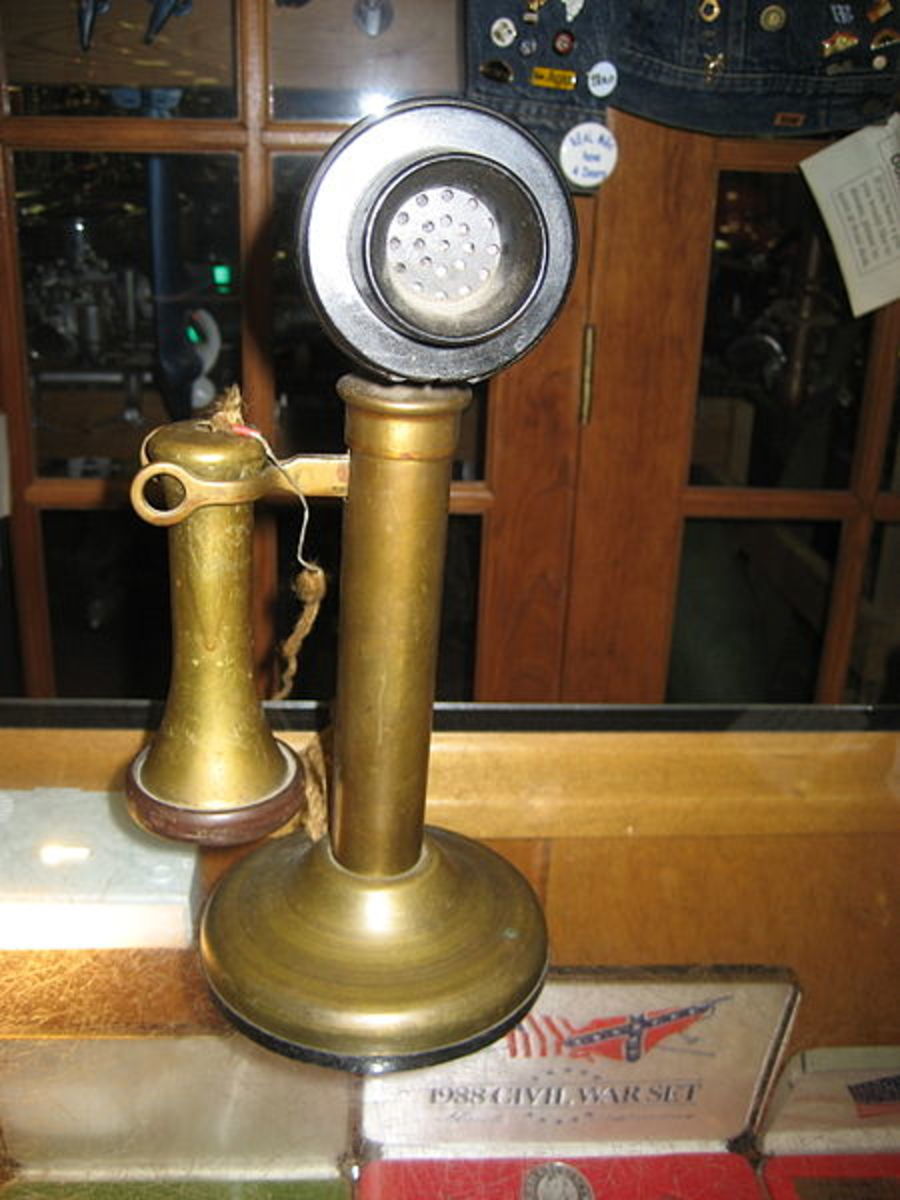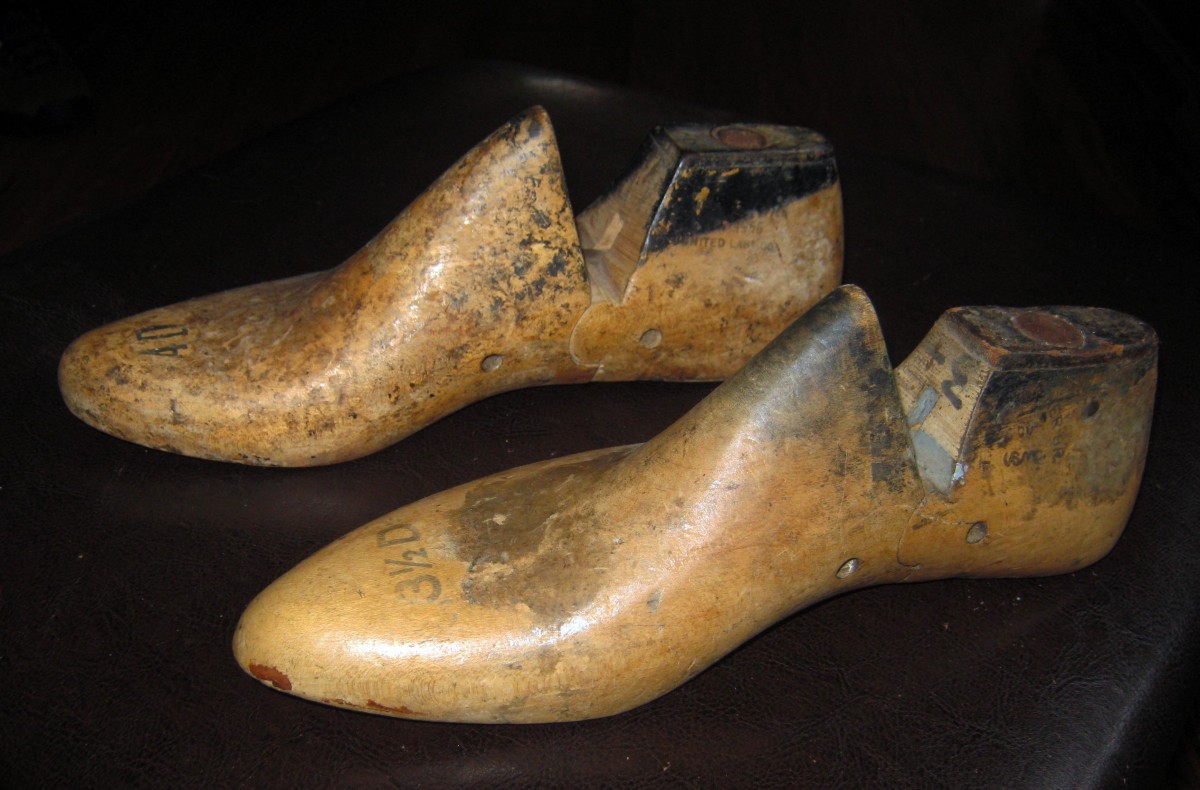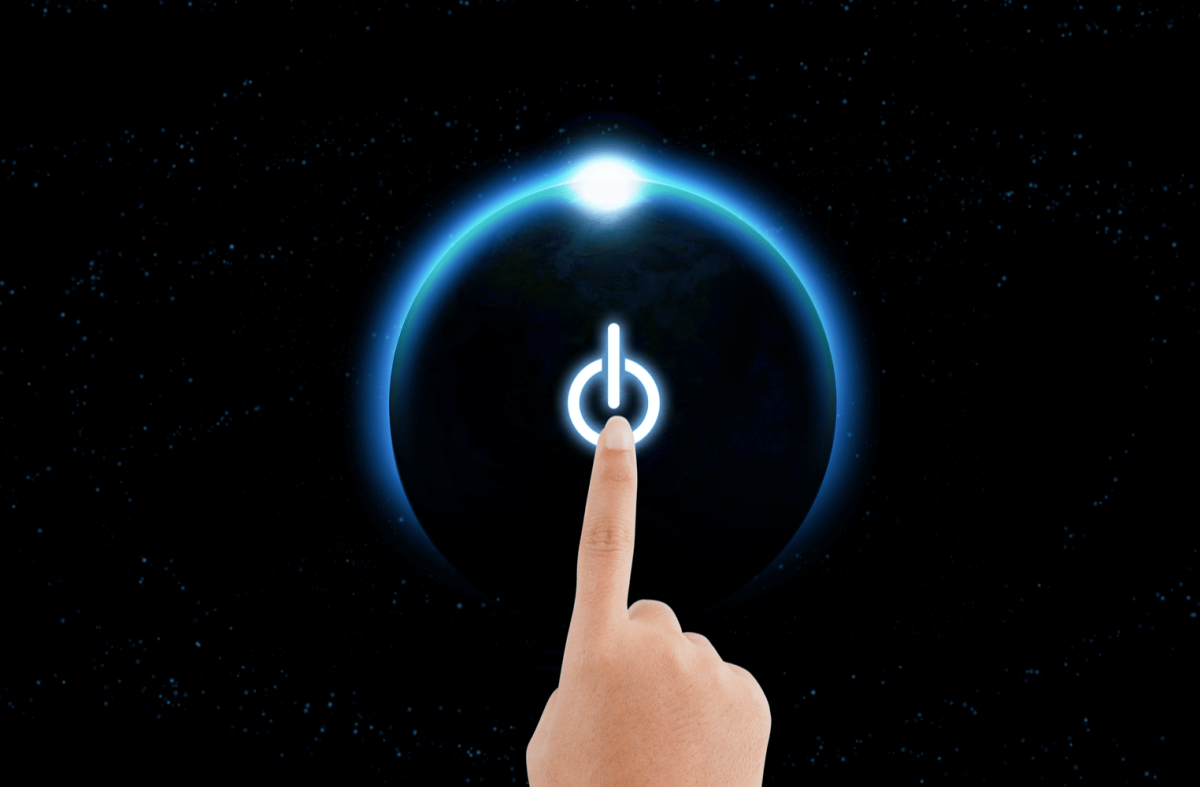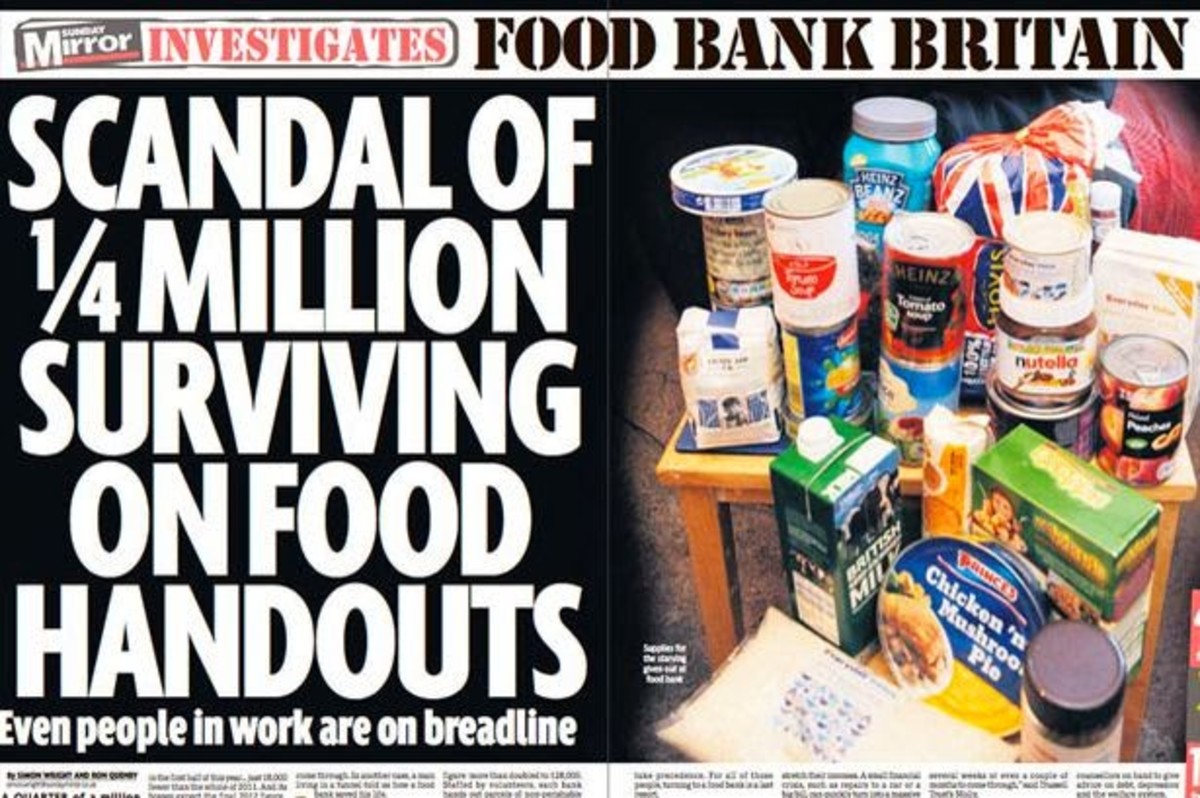6 Facts That Will Make You Glad You Weren't Born A Few Hundred Years Ago
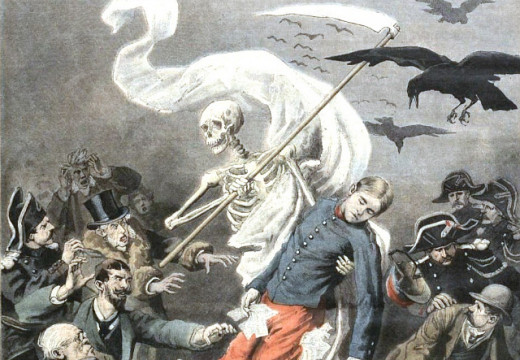
Lets put things into perspective for a moment. Depending on your current social status, at least a few of these things apply to you, today (specially if you live in the US):
You woke up on your bed, resting on comfortable cotton sheets made in China. Picked up your phone made of Thai plastic and Malasyan rubber. Turned on your computer, which is full of special components made in Taiwan or South Korea. Drove your German, Italian, Japanese or American car, browsed the internet through an American server and are now reading this text through a LED screen made in Singapore.
How do you feel knowing that, within the comfort of your home and its immediate spaces, you just rather cheaply enjoyed the services of multiple people and companies from across the world? Of course, this is just a small sample. Undoubtedly, during this very day, you have/will consume a variety of different products that originate from the most remote parts of the world, the production of which move a huge number of people, crossing multiple borders and the sea with a single purpose: To serve your needs.
Across the world, there are people indirectly serving you, extracting petroleum to make gas for your car, planting and preparing your food, developing medicine for you, creating content to entertain you, programming new software for you to use. Every day, you consume small fractions of the results of the work of hundreds of people across the globe. Just as hundreds of people, directly or indirectly, consume the results of your work.
Brittish biologist and journalist Matt Ridley pointed out that, on average, each single adult human being living in a developed country consumes about 2,500 watts, or 600 calories, per second, with the greater part of it comming from petroleum, charcoal and natural gas. Now, considering that a single human being in good shape can generate about 50 watts of energy, this means that it takes about 150 people working for your to maintain your lifestyle.
Think about that for a second.
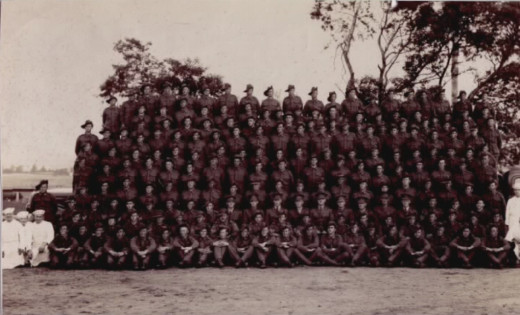
Thanks to the global aspects of modern economy, this is now possible to you and billions of other people across the globe.
Obviously, things weren't always like this. Now consider the fact that this has been only made possible in the last century, and that before that the lifestyle of all humans across the globe was hundreds of times more simple and limited. During nearly 50 thousand years of known human history, we lived in a completely different way. If a human from 500 years ago saw the life of the average human of today, he or she would consider him/herself to be delirious, dreaming of a ridiculously awesome future beyond their wildest dreams.
And yet, day after day we faced with the ever pessimistic droning of so called "critics" of modern times and globalization, for multiple reasons.
Well, here's 7 reasons to why they should be very glad that globalization is here.
1 Life Used To Be Shorter And Far Less Comfortable
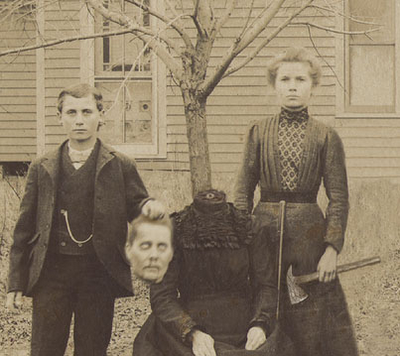
Looking at pictures of the 19th century, you see all these people dressed in what appear to be fine clothing, in beautiful formal posture. But forget about all the pomp, because the fact is that, during the early and mid 1800s, about 3/4 of humanity lived with under a dollar a day, kind of like a huge Somalia.
Now imagine yourself living during those times. You'd likely live a simple life in the country (only about 1/7 of humans lived in cities back then). If you're over 40 years old currently, chances are you'd be already dead since life expectancy back then was tragically low in comparison to today's. You'd suffer horrors which you only know in theory today, such as famine, malaria, poliomyelitis, tuberculosis, and the flu.
The flu isn't that scary, you say? Well, it was quite potentialy deadly back then.
Also, forget about seeing a doctors, that was a luxury of the rich, and even then, the treatment wouldn't be so great.
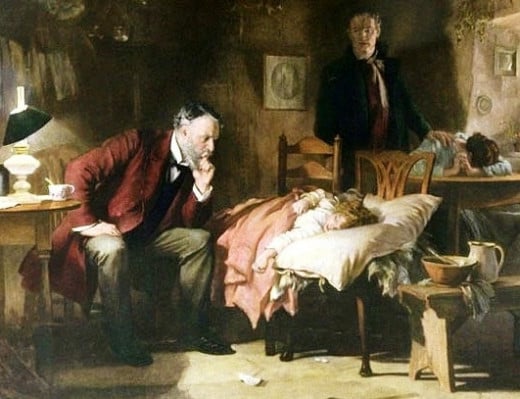
Your access to information would be limited to what people and perhaps local newspapers would be willing to tell you. Most of your diet would consist of grains and other things that don't spoil so easily, since you'd have no freezer.
Did I say freezer? Hell, you wouldn't even have enough electricity to make a light bulb glow.
You'd work on the fields for possibly over 12 hours a day under practically any weather, without sunscreen or any protection apart from your clothes.
Your entertainment would be limited to chatting to other people and the occasional festivals or parties. The only music you'd hear would have to be created by yourself or other people on the spot. Also, alcohol, lots of cheap alcoholic drinks.
Also, remember that prosperity doesn't only mean having lots of money on your pocket. Time is money, basically, and in the 19th century, most of your day would be dedicated to your basic needs as a human being. Currently an African peasant spends about 75% of her daily time getting wood, water, cooking and cleaning, while the other 25% is spent on sleep and maybe some form of simple entertainment. The life of a 19th century peasant wouldn't be too different, if not worse.
2 Modern Middle Class People Lead Better Lives Than The 19th Century Rich

Here's a little story to illustrate this point. During 1836, Nathan Rothschild was the wealthiest man in the world, with his personal wealth amounting to 0,62% of all British national income, and was also stuck in his bed thanks to an infected abscess in his back.
Being such an important man, he had immediate aid from the most renowned physicians of the time.
Then he died.
The richest man in the world during 1836 that had access to every treatment available in that time, died of a simple abscess that couldn't been effectively treated with almost any modern antibiotic.
The wealthiest men of the 1800s would give huge chunks of their fortune to have access to your television, your internet, your pills and probably your condoms, if such things were available at the time. Yet you have all of this available to you in a daily basis.
3 If You're A Man, Your Life Would Suck
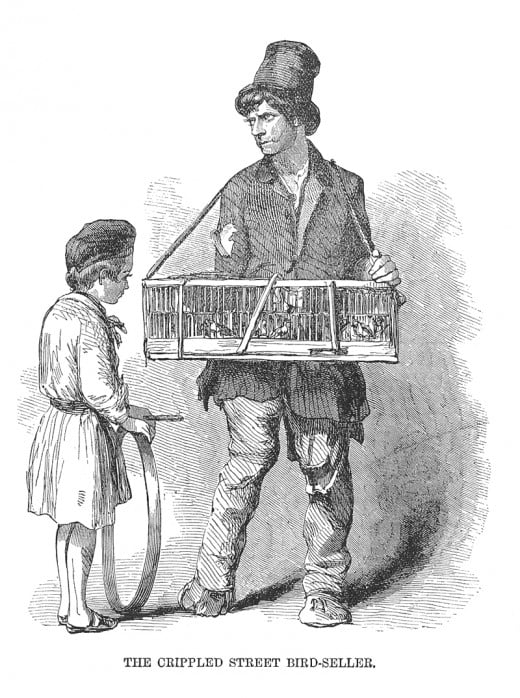
According to the US. Bureau of Labor Statistics, an occidental middle class consumer of the last decade spent his/her income kinda like this (minus taxes):
- ~20% on housing;
- ~18% on transportation;
- ~16% on furniture, electricity, water and tools;
- ~14% in food and drink;
- ~11% on life insurance and saving money for the future;
- ~6% on health insurance;
- ~5% on entertainment;
- ~4% on clothes
- ~2% on education (not including tuition)
- ~1% on soap, haircuts, shampoo, etc;
- ~0,3% in things to read.
While an english peasant during the 19th century would spend his meager income kinda like this:
- 75% on food;
- 10% on clothing;
- 6% on housing;
- 5% on heating;
- 4% on water and soap.

According to historian Christian Petersen, about 80% of the income of non wealthy brittish families was spent on bread. Thats right, bread. Forget pizza and chinese food, you're only getting bread. Stale, hard bread, by itself or combined with other foods for breakfast, lunch and dinner, if you even had 3 meals a day at all.
The duty of a man during the 19th century was providing for his family. If you didn't have a family, you'd be providing for yourself, period. Survival took a good deal of your money and time, and you couldn't do much with whatever little time was left after that, so many just chose to work even harder to get more money, sleeping or heavy drinking.
But... What if you were a woman?
4 If You Were a Woman, Your Life Would ALSO Suck

As a woman in the 19th century, pretty much all that was expected out of you was getting married and having (hopefully male) children. This is something that became even more exacerbated in the second half of the 1800s since, due to war, the male population was dwindling.
Divorce was a rare possibility for any woman. In 19th century England, for example, all that a husband had to do to get a divorce was prove (and sometimes, just claim) his wife's infidelity, while a woman would have to prove her husband was having sexual relations with animals, committing incest or some other grave offense.
Up until 1857, a divorced woman usually lost all of her possessions, and had to give the guardianship of her children away. Up until the Married Women's Act of 1870, a woman who married would pass all of her possessions to her husband upon marriage. Also, if she happened to have gainful employment, her money would still end up in her husband's hands.
Women were very much the propriety of their husbands, being unable to own most things, seek higher education or sign legal documents without her husband's approval.
This scenario only started to change during the industrial revolution and onwards.
5 The Horror Of Living (And Dying) In Cities

During the 1899s, a Chinese ambassador was questioned about the grandeur of Victorian London during the height of its power. He said only one thing: "too dirty".
Its no news that Victorian cities weren't the cleanest places on Earth. This became even worse during the 1800s, in which cities like London suffered a huge population boom. London itself had about 1 million citizens during the early 1800s, which became 6 million citizens by the late 1800.
Now here's the thing. The main transportation method of the time were horses. About 200 thousand horses were used for transportation in London. Now, consider that the fact that each horse produces about 10 kilograms of excrements per day.
It doesn't take that much math to realize just how much excrement we're dealing with here. About two thousand tons of horse dug were deposited on the streets of London on a daily basis. New York was also flooded with, er, excrement, too. And with it, came also urine, diseases, dead dogs and cats. There were no cars yet, so either people walked to wherever they wanted to go, or they used horses.
The situation was dire. In 1894, the London Times published a note estimating that, by 1930, the streets of London would be covered in a 2.7 meters deep layer of horse dung.
There was also the issue with sewage. In London, throwing garbage and everything unwanted in the Thames was a frequent practice, creating one of the most terrifying mixtures known to mankind: Thames water, also known as "monster soup", was often used as a synonymous to sewage for a long time.
Here's A Nice Book On This Subject
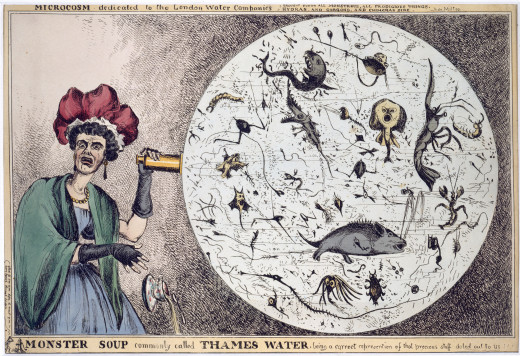
And there's also the issue with the graveyards. Victorian London was so crowded with the living that they didn't leave much space for the dead.
Despite being the wealthiest city in the world during the 19th century, London had only about 90 hectometers of cemeteries. Considering that, during that time, graves weren't that deep due to having to pay people to make the holes with shovels, which wasn't very cheap, you can probably expect the horrors that came next. There are accounts of bodies literally popping from the ground, becoming a banquet for crows and other animals.
Going to a funeral was an ordeal that few people could handle. The smell was often terrible, specially during the rainy season (which, considering this is London we're talking about, means it smelled terrible all the time).
The lack of space in graveyards caused people to stack coffins on top of each other, which would eventually cause the coffin at the bottom of the stack to get crushed. Once this happened, the body inside would be dismembered and buried somewhere (or incinerated) while the wood would be sold to poor people as firewood.
This problem only became worse due to the rise of deaths in the 1800s due to the squalor people lived in.
Epidemics were common: In 1832, a massive cholera epidemic killed about 60 thousand British people, and would return to plague London on several times in the next decades. Typhoid fever killed thousands of people annually, and convulsive coughing killed tens of thousands of children. This, in turn, filled up the graveyards, which worsened the problems mentioned above, which in turn made disease and resulting epidemics happen more often. It became a vicious cycle of death and disease which seemed endless and affected people of all walks of life, but mostly poor people.
6 You Probably Wouldn't Be Able To Read This... Or Anything Else

I'm not talking about the internet, which is a luxury we've only had for about for about three decades now. I'm talking about the ability to read.
Around 1870, only about 1/4 of the world population (that's a really optimistic estimate by the way) had access to some form of formal schooling. In Africa and Asia its estimated that only about 1 in every people had some kind of formal education. Only the elite had access to education. Considering some very optimistic estimates, only about 12% of people were literate.
Now consider that, just about 140 years later, about 4/5 people in the world know how to read and write. Quite an impressive (and unprecedented) leap, and you don't even have to go into the hundred years mark to notice the difference: Between 1990 and 2010, literacy rose from 76% to 84%.
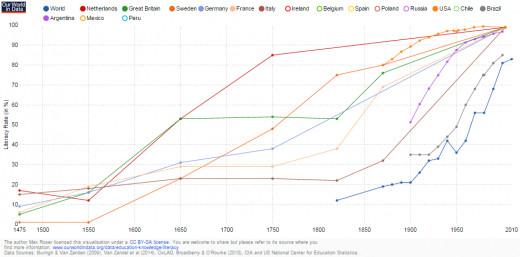
Living in the 19th century, you'd hardly know anything about the world or anything besides your immediate surroundings. Public libraries were a rarity or only accessible by the academical elite, books were still significantly expensive, despite the printing press already existing. Your main source of knowledge would be local gossip.
And even then, in the midst of all the ignorance and rubbish, an immense revolution would be born, one that would change the face of humanity forever. Led by brilliant and progressive minds, the series of transformations that would bring about the industrial revolution and other occurrences would first be spawned in this age of pain and suffering known as the 19th century.
Author's Note
Granted, with greater powers, comes greater problems, but quite a few of the problems we're worried about today, such as global warming, environmental decay, overpopulation, general resource and energy scarcity, etc; are mostly problems that already existed and weren't created overnight. We're so worried about them now because we're more aware of them than we've ever been, thanks in no small part to mass media and the internet.
Since we are now aware of these problems, we have a personal responsibility in trying to find ways to solve them. We must adopt individual and collective action by living cleaner, less wasteful lives, and supporting technological developments that free us from our limitations, instead of those that just feed our vices.
Or you can keep reminiscing about how much better the old times were... And live life with a pessimistic attitude that says everything is inevitably decaying. Its your choice.
Regardless of what you choose, humanity will go on thanks to the people that are willing open their minds and see that, in the grand scheme of things, we're slowly getting better at existing.





